Professional Development Training
Tools for Participation Training
This website will be updated with future course dates
Five day workshop in Hepburn Springs, Central Victoria
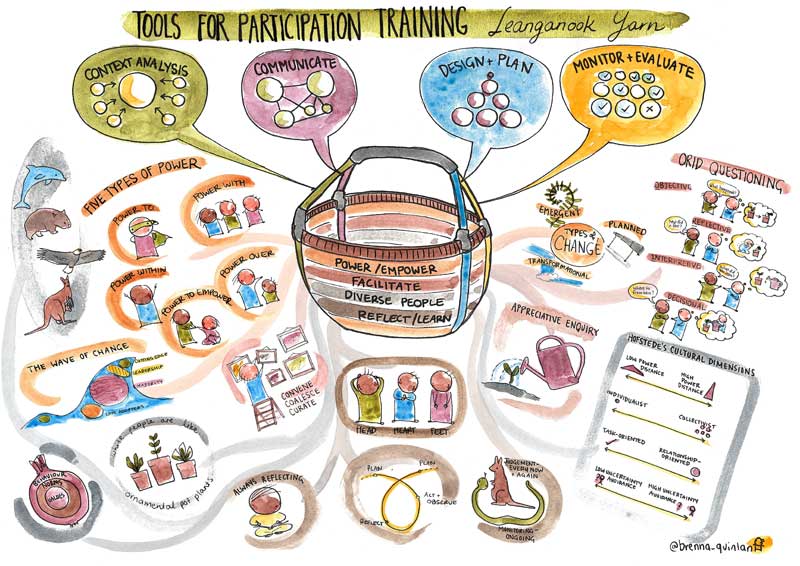
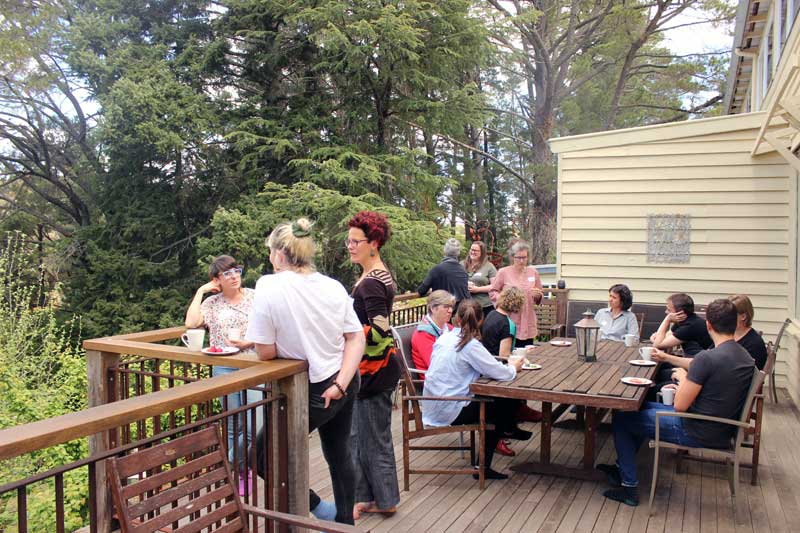
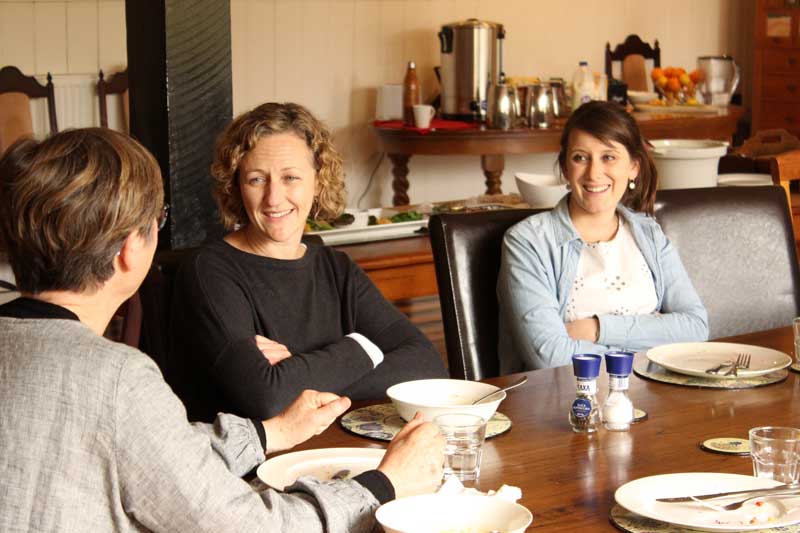
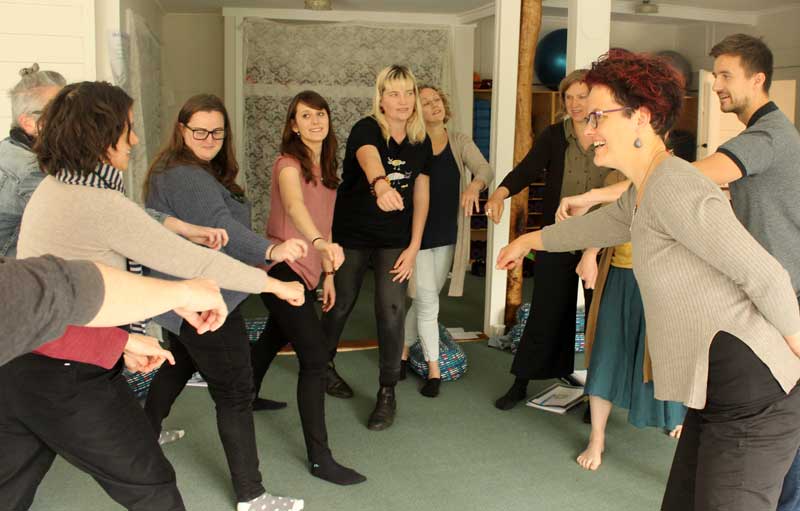
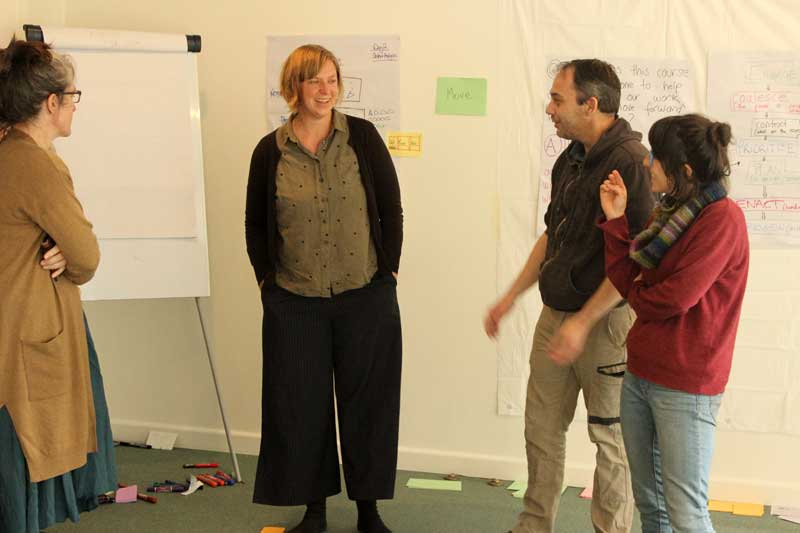
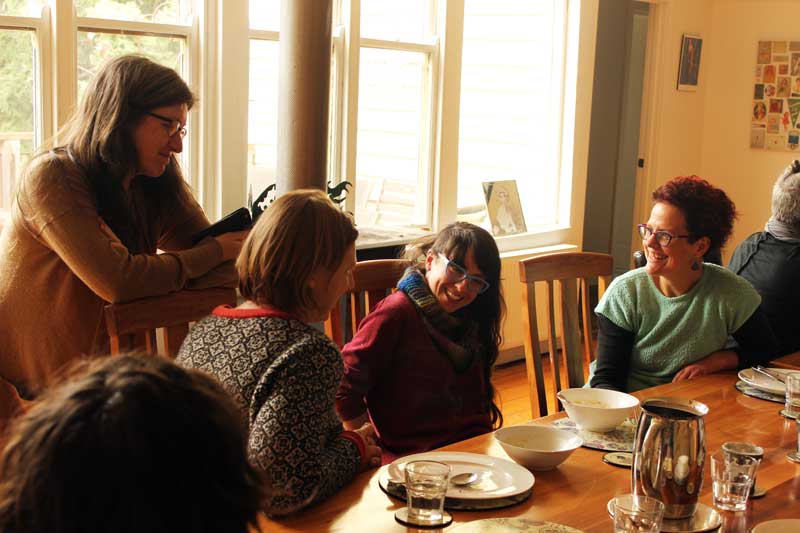

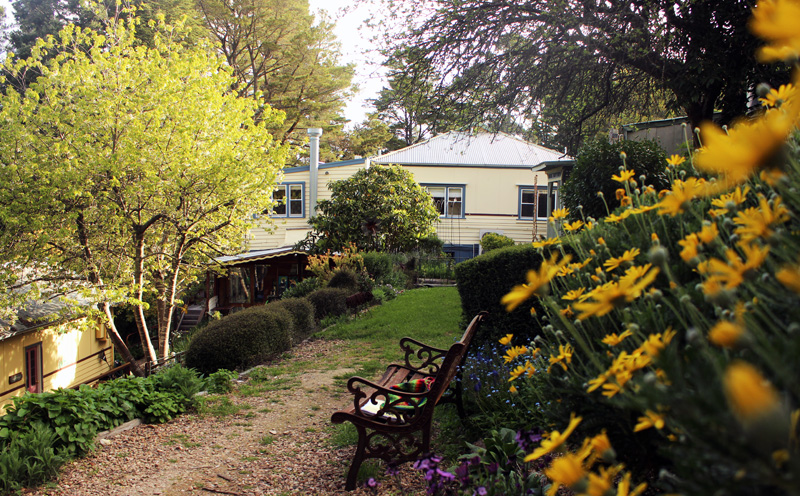
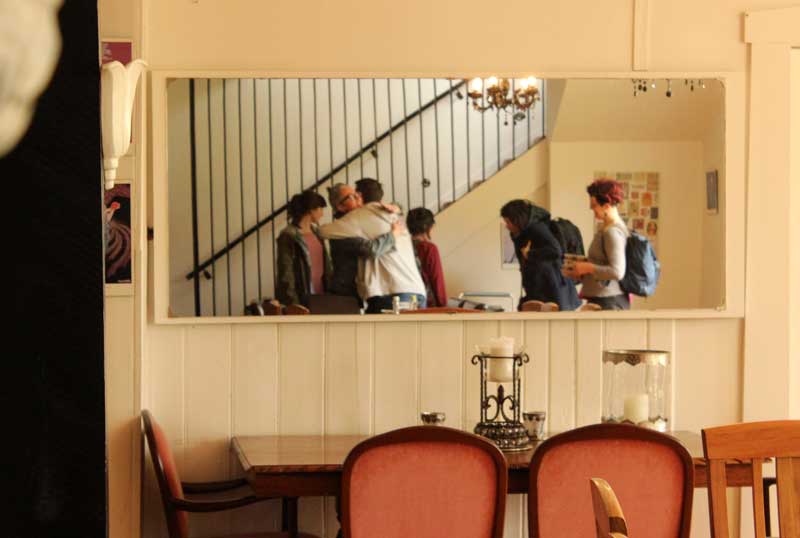
Gain practical skills and knowledge for best practice community engagement and development. Put theory into action and immerse yourself in experiential learning with your peers, weaving participatory and empowerment practice into your work. Topics included are:
- Planning and Design — Participatory Theory of Change / Program Logic, Co-Design, Complexity;
- Monitoring, Evaluation and Research — Participatory and Developmental Evaluation, the Most Significant Change Technique, Outcome Harvesting and Action Research;
- Social Inclusion and Community Engagement — Social inclusion and engagement tools;
- Working Cross Culturally — Trauma Informed and Culturally Safe;
- Learning and Empowerment — Practical empowerment tools, transformational processes and horizontal learning;
- Communication — using illustrations, diagramming and participatory story techniques; and
- Facilitation — Facilitation tools and working with personalities and teams.
An interactive, practical and experiential workshop.
Be immersed in transformative practice. Discover what empowerment means from a place of knowing self, place and purpose and come away feeling confident to use a variety of participatory methods, tools and techniques. You are invited to bring a project to use as a case study for practical application of the tools.
Framework
The training draws from the Institute for Development Studies in the UK (the international hub of Participatory Approaches) as well as the Barefoot Guides from the Barefoot Collective in Southern Africa. The course is also influenced by Australian Aboriginal and Asia-Pacific cultures.
Who should attend?
- Government and NGO community development workers;
- Program officers and coordinators working in international development;
- Current students who want to learn the practicalities of implementing theories learnt at university;
- Consultants; and
- Graduates in the fields of community development, international development and social work who are well versed in theories but have had little access to the practical skills for implementation.
Trainers
Established and accomplished participatory practitioners, the trainers bring a wealth of practical experience to this workshop. Versed in fun and inspiring techniques, they use different and complementary styles
Natalie Moxham, Director of Leanganook Yarn, has over 25 years experience in participatory program design, monitoring and evaluation. She has facilitated, trained and worked in a multitude of community development contexts, including with international NGOs, Indigenous Australians, and within the Australian community and government sectors. Natalie is passionate about authentic processes that enable us to be our best and bring about grounded change.
Vanessa Hood is the Associate Director of Rooftop Social. A facilitator and evaluator with over 15 years’ experience, Vanessa specialises in the use of creative facilitation techniques to help stakeholders engage with complex content and make the most of their time together. She conducts evaluations in a range of contexts and she regularly trains and coaches others in evaluation design, conduct and use.
Deborah Rhodes is an international development consultant at Leadership Strategies. She specialises in facilitating groups of people to undertake planning, activity design, monitoring/assessment and learning processes in cross cultural contexts. Her career has a foundation in Government and non-profit aid agencies and she is now recognised for her expertise in capacity development approaches relevant to Asian and Pacific countries. She has particular interest in the intersection between cultural values and capacity development. Deborah has skills in facilitation, cross cultural communication, training and all aspects of aid program management, including design and monitoring. Since 1986, Deborah has worked in Pacific Island, Indian Ocean and Caribbean countries as well as Indonesia, China, Laos, Vietnam and Cambodia.
She has authored Capacity Across Cultures: Global Lessons from Pacific Experiences (2014), which is now a text book in Australian and New Zealand universities; and Practitioners’ Handbook for Capacity Development: A Cross-Cultural Approach (with Ernie Antoine).
Five day, four night residential
Cost
Course Fee
$2300 AUD + GST Includes tuition costs and training materials
Discounts available, contact us for more information
Accommodation and Meals
$1100 AUD – private room and all meals
$770 AUD – twin share room and all meals
Maximum of 18 places available.
This course is currently postponed indefinitely
For more information or to register your interest contact Isabel: isabel@leanganookyarn.com
Most Significant Change training
The Most Significant Change (MSC) technique is a participatory monitoring and evaluation technique used to collect and select significant change stories from program participants. It involves interviewing participants at particular stages in the program to capture their voice and to understand their change from being part of the program. MSC allows for deep, rich voices of participants to be heard. It is culturally sensitive, enables program staff to grasp the overall impact of the program and promotes organisational learning.
MSC is a great technique for those wishing to hear and understand the richness of their work and strongly hear from their clients.
Leanganook Yarn has been utilizing this technique since our establishment, and Natalie is a widely recognised expert in this field.
Dates: TBC
